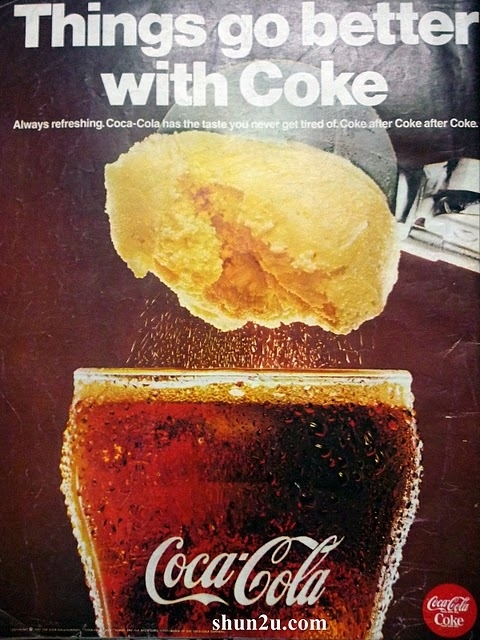From AdAge:
Just months after 4-year-old music startup Spotify partnered with Facebook to goose new-user signups and reach new audiences, it’s turning to a behemoth of an entirely other type: Coca-Cola. Spotify and the Coca-Cola Co.have forged a strategic partnership to promote the music-streaming service as it launches in new countries. In turn, Coca-Cola will feature Spotify in a campaign as the beverage giant looks to double revenue by 2020.
…Spotify will be the centerpiece of Coca-Cola’s “Year of Music” campaign in 2013, said Joe Belliotti, director-global entertainment marketing at the soft-drink marketer. Music has been central to Coca-Cola’s efforts to reach teens, a demographic group projected to represent one-third of the global population by 2020. The U.S., China, India, Indonesia, Nigeria and Pakistan are expected to have half of the teen-age population by then.
From The Daily News:
A deadly Coke habit may have contributed to the death of a woman in New Zealand who drank a staggering two gallons of Coca-Cola a day, experts said.
Natasha Harris, a stay-at-home mother of eight, died in February of 2010 of a heart attack at the age of 30, the Associated Press reports.
She drank between 2.1 and 2.6 gallons of the soda every day her partner Chris Hodgkinson testified. “The first thing she would do in the morning was to have a drink of Coke beside her bed and the last thing she would do at night was have a drink of Coke,” Hodgkinson said in a deposition. “She was addicted to Coke.”
For those who don’t know, Spotify is a European music service that launched in the US last July. The general consensus is that Spotify is great for music lovers and not great for the music we love: that is, it’s slightly more ethical than downloading music illegally, but perhaps only because you’re not breaking the law. Gabriel Kahane, with whom I work, offered that the problem with Spotify is not with the actual money (or lack thereof) exchanging hands, but with how we listen to music.
Not being an artist myself, I don’t feel I get a vote on the subject, though it is a fascinating one. When you write a book, do you get to decide how I read it? I may read it in the bath–I may drop it in the bath!–I may read it on the beach, I may fall asleep reading it, I may read it out loud to a child and mispronounce names, I may read half one year and half the next (Sorry, Girl with the Dragon Tattoo). In his post, Gabriel makes the point that you can’t read while doing something else (except bathing and tanning, in my case), whereas music is–I might argue most often–in the background. Most of the world experiences classical music through movie scores and telephone hold music! If music doesn’t make you stop what you’re doing, is it the listener’s fault or the artist’s fault? And is distractingly good the only good?
I’m less interested in how people actually experience books and records than in what headspace the creator is in when putting something out into the world. In a concert, a performer ostensibly knows how the audience is experiencing music: we’re all in the same temperature room, the same smelling room. We bought a ticket just to see you, you have our full concentration. Do you really know how I’m experiencing it, though, even if we’re seemingly doing so together? What if I broke up with my boyfriend that morning and haven’t listened to a note you’ve played? Are you thinking about everyone who may have broken up with someone that day when you go on stage?
With an album, an artist really has no idea who’s listening and how, and, frankly, we the listeners are completely unaware of the circumstances in which you recorded it. (Pianists Jonathan Biss and Jeremy Denk both wrote–for Amazon’s Kindle Singles and for The New Yorker, respectively–on the recording process of their most recent albums.) How does a musician listen to a final recording and decide yes, this is how I want this music experienced, be it while someone washes dishes or sits in a dark room with the best possible speakers? Would the best possible product be created without the listener and her dishes in mind at all?
Using music in the background can sometimes be the highest praise. I finished my college thesis listening to Weezer’s “Why Bother” on repeat in the library stacks. I can’t explain it, but that’s what I needed to concentrate. Does that mean I think less of Weezer? Certainly not! But in that moment, that is how I needed that music to function. Think about music for long car rides: I can’t hear one song from The Rhythm of the Saints or Graceland without remembering very vivid moments from a family trip to Chincoteague Island. Paul Simon deserves as much concentration than just about anyone, but that is how I have that music: on the terrible car speakers, thinking about having to stop for a family of quails crossing the street.


An interesting think-piece, but what stuck in my mind was…
“…the beverage giant looks to double revenue by 2020.”
DOUBLE their revenue within eight years! Yikes. I prefer Coke over Pepsi, but I doubt that I’m going to double my consumption by 2020, so the burden is on someone else. And my heart goes out to the marketing team tasked with reaching that goal.